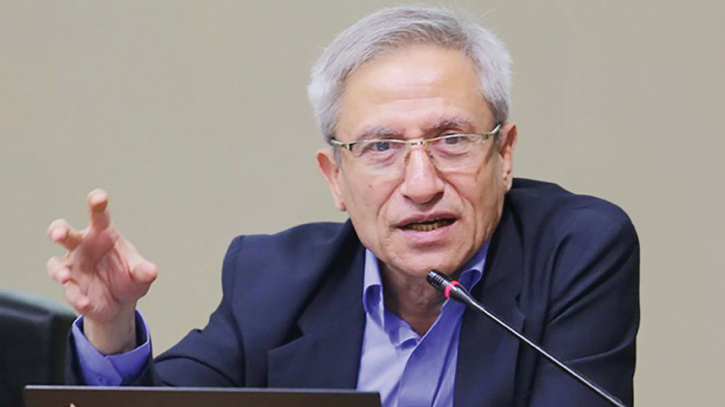
Zahid Hussain. Former chief economist, WB Dhaka office. Photo: Collected
Finance Minister Abul Hassan Mahmood Ali will present the budget for the fiscal year 2024-25 in parliament tomorrow. In this time of economic tension, crisis of reserves, and high inflation, Zahid Hussain, former chief economist of the World Bank's Dhaka office, expressed his opinion on what the budget should look like in an interview with The Daily Messenger’s Senior Reporter Jannatul Ferdushy.
Which sector should be prioritised in the next budget and why?
Zahid Hussain: There are four important points to keep in mind when it comes to the strategic priorities of the budget from a macroeconomic perspective. Determining what the budget should do to control inflation, finding ways to restore balance in foreign trade, determining the role of the budget in restoring stability to the financial sector and to ascertain how the budget can be helpful in bringing back the financial solvency of the backward communities.
What needs to be done to increase budget implementation capacity?
Zahid Hussain: For this, a priority budget should be created in terms of expenditure. That is, if it is not, it will not cause much damage – this should be taken into consideration. After that, timely release of money should be ensured in priority sectors. Besides, there is no alternative to ensure accountability. In this case, timely reporting and corrective action should be taken based on the information received in the report.
What needs to be done to increase income?
Zahid Hussain: Revenue can be increased in two steps. Firstly, tax policy should be reformed in sectors which have not benefitted from concessions for 20 to 25 years. Secondly, there are different rates in the same sector, which should be reduced to a single rate because the law in 2012 imposed 15 per cent tax on all other sectors, except for some exceptions like medicines and daily necessities. Besides, the leakages of tax collection need to be reduced. In other words, the problems of taxpayers paying but not depositing in the treasury should be resolved.
Which sector should be subjected to cost cut?
Zahid Hussain: If you want to reduce cost, you have to reduce subsidy. In this case, price increase is not the only way. Apart from this, there is another strategy – to reduce the cost of production. Besides, subsidies are being given in some sectors, including remittances, which are not getting any results, should be stopped. Non-ADP capital expenditure should be reduced. Expenditure should be reduced, especially in the building and vehicle sectors. On the other hand, in taking mega projects in ADP, it is important to determine their role in the economy. Non-mega projects under the transport and rural development and institutional sectors are also experiencing a lot of wastage.
IMF has asked to keep the budget size small. Do you agree?
Zahid Hussain: IMF has recommended that budget deficit do not increase. However, this is for the financial year 2025-26. And what they have asked to do now is to reduce the budget deficit by defining a strategy for a period of three to five years. There is no room to disagree on this. At present, increasing the deficit means fuelling high inflation.
What are some of the challenges that need to be kept in mind on a priority basis while preparing the budget?
Zahid Hussain: There are several challenges in budgeting. In this case, credibility is important. Do not make promises if you cannot keep them. Moreover, the targets should be realistic. Then those concerned will be motivated to implement the targets. At the same time, effective accountability targets should be set. A balance between capital expenditure and operating expenditure should be maintained.
Messenger/Disha








